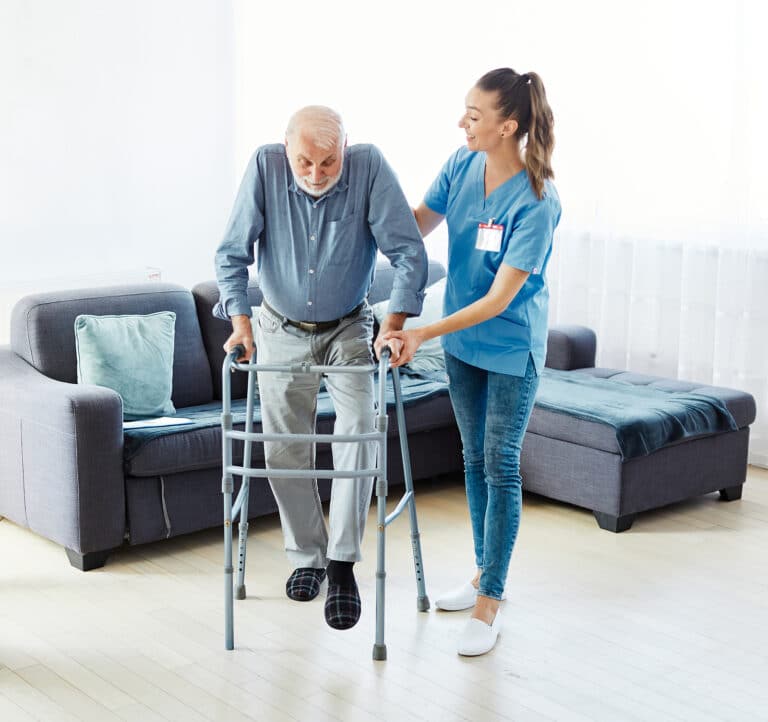Sustaining mobility as we age is essential to retaining freedom and a high standard of living. For some seniors, this requires the use of mobility aids. However, with so many alternatives available, selecting the best mobility devices can be difficult. The right one should be based on the senior’s individual needs, lifestyle, and any unique obstacles they may encounter. With the help of loved ones and home care services, seniors can explore their options and gain valuable insight into what might work best for their needs.
Evaluating the Need for Mobility Aids
It’s important to determine the precise mobility issues a senior is experiencing before selecting mobility devices. The assessment should consider a number of variables, including balance, the amount of strength they have, stamina, and any current health issues. Talking with the medical team and home care providers can provide resources and suggestions along the way.
For more information on the variables noted above, see the following:
- Balance Problems: Seniors who struggle with balance may find that walkers or rollators helpful.
- Strength and Endurance: Lightweight and simple-to-use mobility devices are best for seniors who tire easily or have limited strength.
- Certain Medical Conditions: A number of conditions, including arthritis, Parkinson’s disease, and stroke, can have varying effects on movement and call for the use of specific aids. The medical team can offer suggestions for seniors to consider.
As mentioned, finding the right device requires an evaluation. While family members and home care providers can document things noticed in the home, a physical therapist, occupational therapist, or medical doctor can complete a professional evaluation.
Exploring Mobility Devices
Mobility aids come in a variety of forms; each intended to accommodate a range of mobility issues and support levels. Below is a summary of popular mobility devices and when they should be used:
Canes
Seniors with modest balance problems or slight instability may find canes helpful. Plus, they can be tucked out of the way and are easy to transport.
Not all canes are created equal, however. For instance, quad canes offer more stability thanks to their four-point base, while single-point canes offer the least support. Additionally, canes should have a comfortable grip and be able to be adjusted for height.
Walkers
Seniors who require more assistance than a cane can offer, especially those who have serious problems with their strength or balance, might do better with walkers. As with canes, there are various options to consider. For instance, rollators are four-wheeled walkers with seats.
It’s important to find walkers that are suitable for both indoor and outdoor use. Also, consider the senior’s need for resting while walking. This is one of the many reasons why rollators are so popular.
Last but not least, loved ones may want to consider accessory options like baskets that seniors can utilize to carry things.
Wheelchairs
Wheelchairs can be found in two types: electric wheelchairs (driven by a motor and controlled by a joystick) and manual wheelchairs (driven by the user or a home care provider). While electric wheelchairs provide seniors with low upper body strength greater independence, manual wheelchairs are lighter and less expensive.
Home care services can help loved ones select a wheelchair that fits the senior’s body type, has a comfortable seat, and can support their weight. Additionally, if the wheelchair will need to be moved about a lot, portability should be taken into consideration.
Selecting the best mobility devices is key to ensuring seniors can maintain their independence. By working with home care providers and the medical team, family members can more readily find the right device for their loved one.
If you or an aging loved one are considering Home Care in Greensboro, NC, please contact the caring staff at Affordable Family Care.
Serving Raleigh, Greensboro, and the surrounding areas in North Carolina. Call today at (919) 676-1070
Sources:
- https://www.springhills.com/resources/senior-mobility-aids
- https://familytreecares.com/right-mobility-aids-help-seniors-safe/
- https://www.agingcare.com/articles/expert-advice-how-to-choose-a-mobility-aid-190138.htm
- The Benefits Of Home Care For Seniors With Arthritis - April 9, 2025
- Does Your Mom or Dad Need 24-Hour Home Care? - March 27, 2025
- Why Sun Protection Is So Important For Seniors - March 7, 2025







